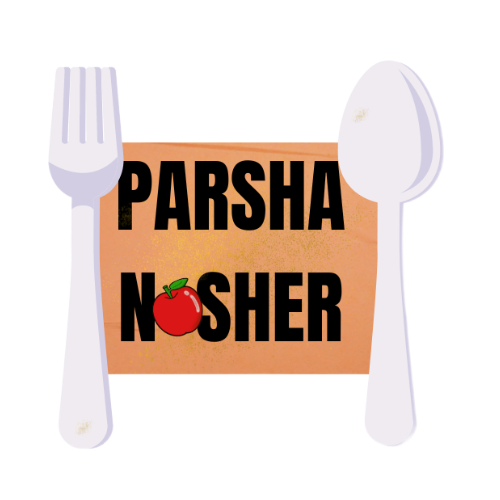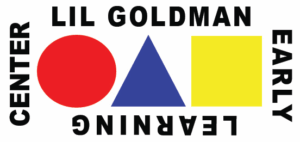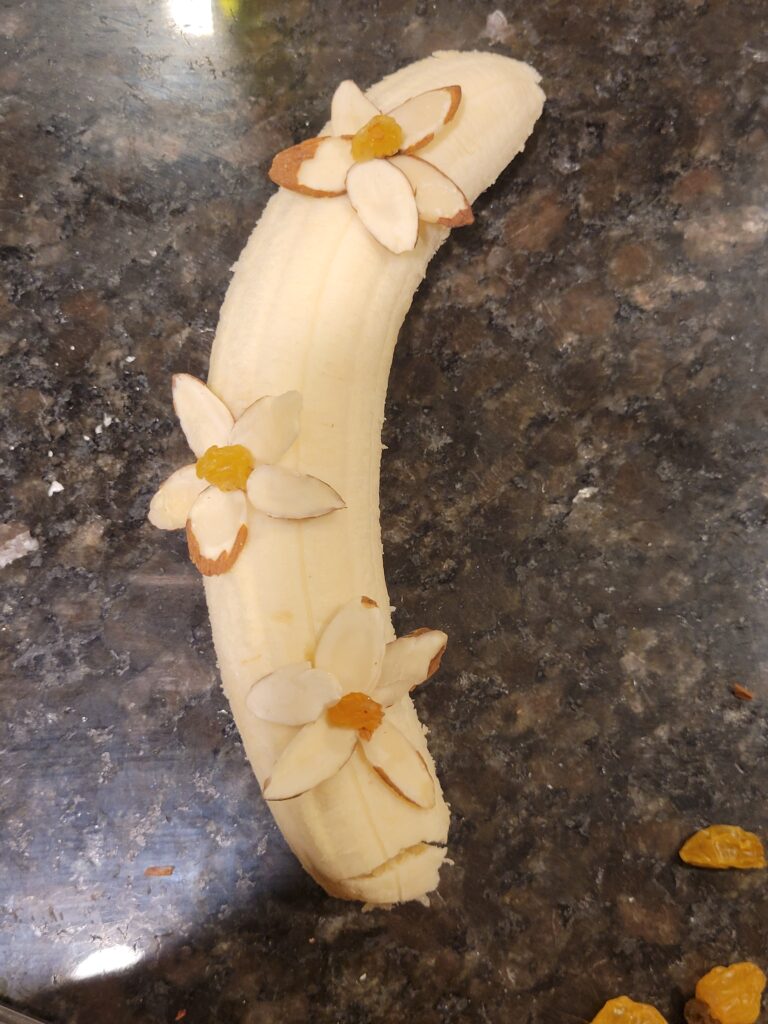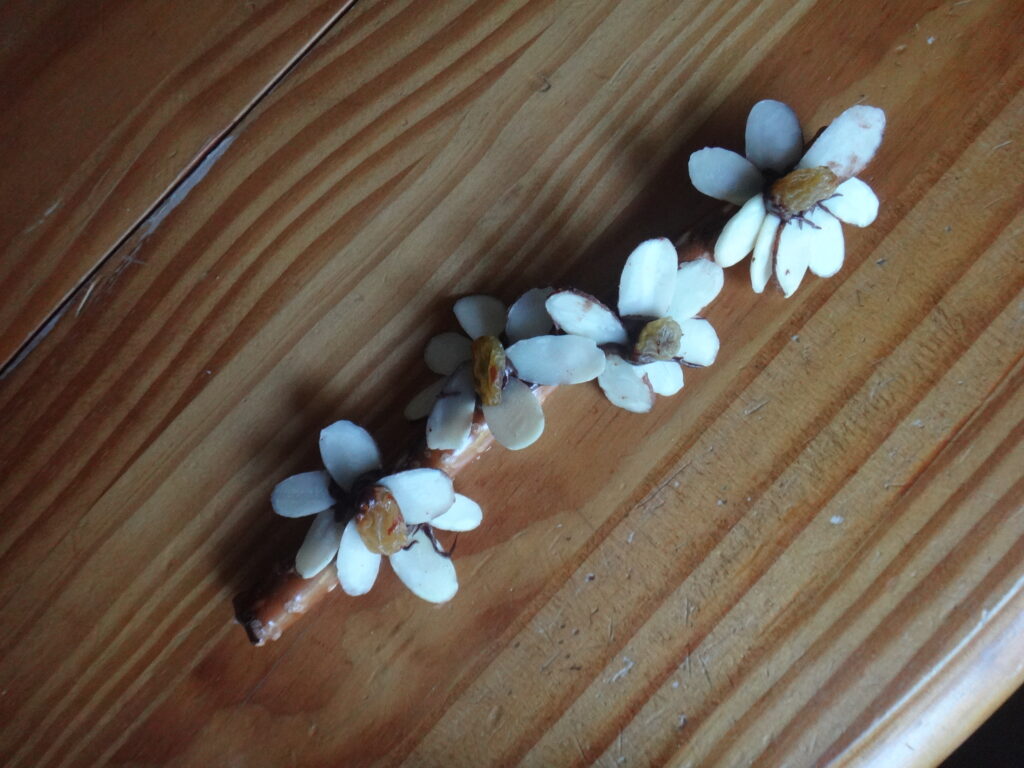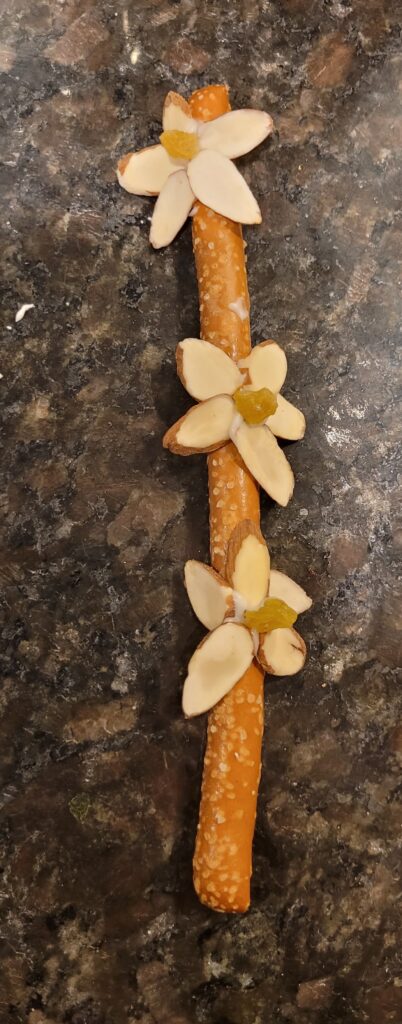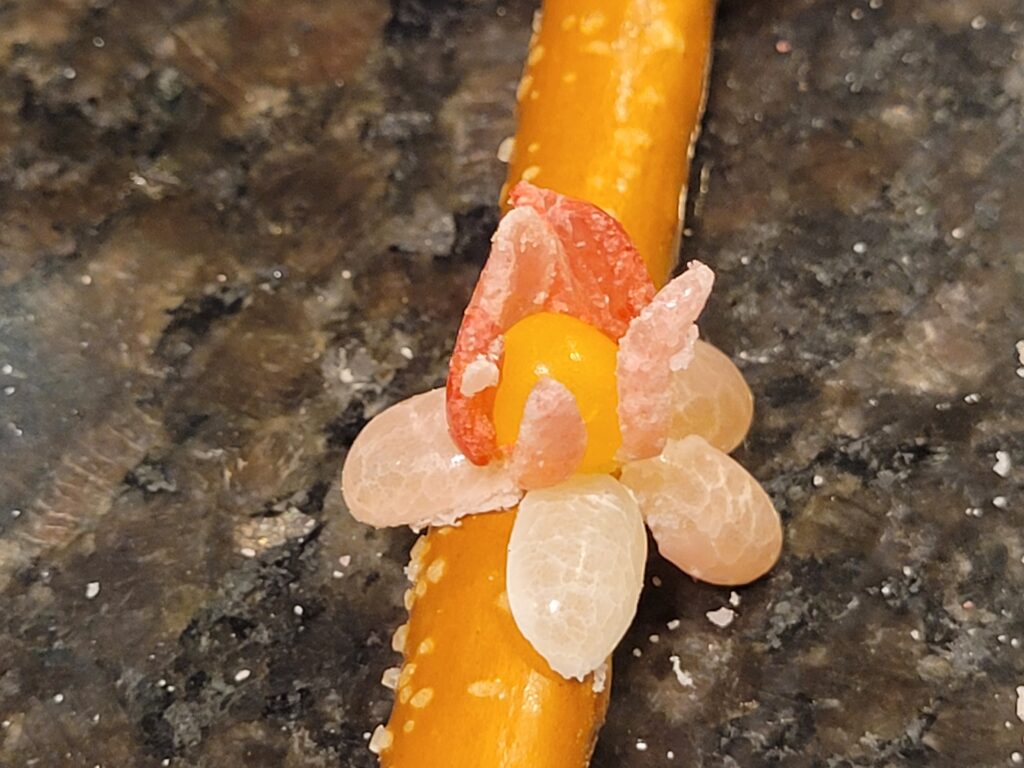| And Korach the son of Yitzhar the son of Kehat the son of Leivi, and Datan and Aviram, sons of Eliav, and On, the son of Pelat, of the tribe of Reivein, took: | Vayikakh Korach ben Yitzhar, ben Kehat, ben Leivi, ve-Datan va-Aviram b’nei Eliav, ve-On ben Palat b’nei Re’uvein. | וַיִּקַּח קֹרַח בֶּן־יִצְהָר בֶּן־קְהָת בֶּן־לֵוִי וְדָתָן וַאֲבִירָם בְּנֵי אֱלִיאָב וְאוֹן בֶּן־פֶּלֶת בְּנֵי רְאוּבֵן׃ |
Torah Thoughts
Korach, a prominent member of the Levi tribe, challenges Mosha and Aharon’s leadership. Moshe asks God to show the people a sign that Korach is wrong, whereupon Korach and his followers are swallowed up by the earth. The people, however, state that one Jew should not kill another, and that Moshe should not have asked God to kill those who challenged him. God then instructs the leaders of the tribes to label their walking sticks and place them in the Mishkan, and the next day Aharon’s rod bloomed with almond blossoms.
While the story in itself is interesting, it is also a fascinating study in the challenge of authority. If you have time, I urge you to read or listen to the late Rabbi Jonathan Sacks’ article on the subject. Links follow:

